More European countries are facing lockdowns as coronavirus cases surge
Europe is on ‘red alert’ as more countries have locked down as a fourth wave of coronavirus disrupts Christmas plans. Here’s what you need to know.
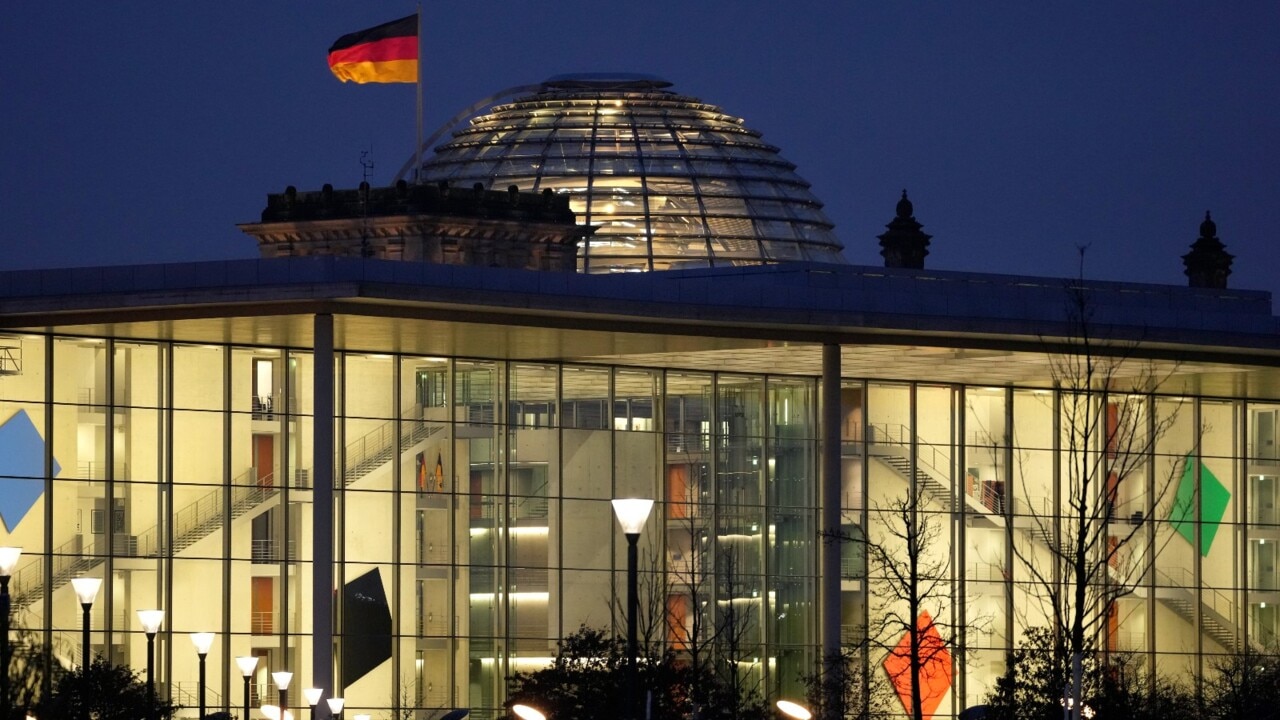
Coronavirus
Don't miss out on the headlines from Coronavirus. Followed categories will be added to My News.
Five European countries face new lockdowns in a matter of days as Covid-19 cases surge by two million in just one week.
German Chancellor Angela Merkel announced a rule that will ban unvaccinated people from cafes, restaurants and other indoor public spaces across most of the country which has found itself in a “highly dramatic” situation in the lead-up to Christmas as a record 65,000 new cases were reported within 24 hours.
A new medical report warned the European continent could face an additional “300,000 deaths and one million people in hospital” if Covid-19 restrictions aren’t tightened further.
According to The Sun, the London School of Hygiene and Tropical Medicine study warned that 280,000 people in Germany alone could end up in hospital if restrictions are completely lifted.
It comes as Austria plunges into a lockdown from Monday after the number of people with Covid in the past fortnight shot up to 1959.88 per 100,000.

Meanwhile, seven people were injured after Dutch police opened fire on anti-lockdown rioters who were protesting against the government’s latest shutdown.
Hundreds of rioters descended on Rotterdam’s shopping district, setting cars and bikes ablaze as they rallied against the latest three-week partial lockdown.
Europe accounts for more than half of the seven-day average of infections globally and at least half of the latest Covid deaths, according to a tally by Reuters.
The World Health Organisation reported it was the only region in the world where Covid-related deaths increased last week, leading Belgium’s Prime Minister to say the continent was on “red alert”.
As colder weather in the Northern Hemisphere forces people indoors and Covid-19 cases continue to rise, there are five countries bringing back strict measures as the highly infectious Delta variant rampages through the unvaccinated putting several countries’ healthcare systems on the brink of collapse.
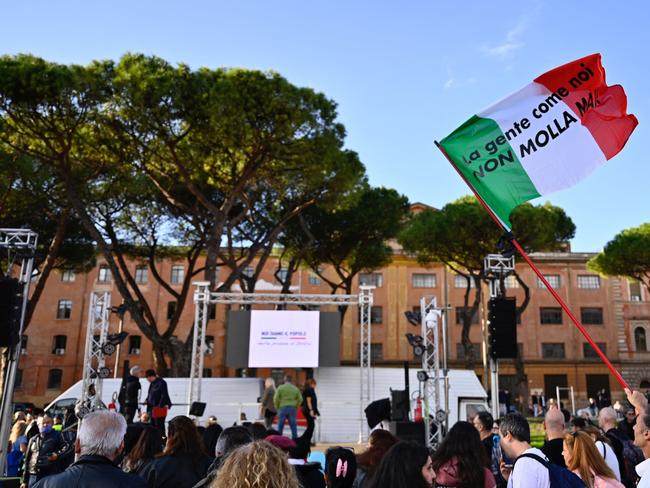
ITALY
While approximately 84 per cent of Italy’s population is fully vaccinated, around seven million are still refusing to get the jab.
Anti-vaxxers have rocked the capital with protests in recent weeks against the government’s the Green Pass, which restricts free movement and civic access to the vaccinated.
Italy recently introduced a new law allowing transport staff to eject passengers mid-journey if they show coronavirus symptoms, according to The Sun.
In the two weeks up to 18 October, Italy registered 111,085 cases and 810 deaths, bringing the country’s overall death toll - one of the highest in Europe - to 133,084.
Five Italian governors are now threating a lockdown on Italy’s unvaccinated population after the country reported a 28 per cent surge in new infections on Thursday, local time.
Messimiliano Fedriga, governor of Friuli-Venezia Giulia in Italy’s northeast, said: “Eventual new lockdowns should not have to be suffered by those who are vaccinated. Restrictions should only apply to those who are not immunised.”
The governors of Tuscany, Calabria, Liguria and Piedmont have pledged to introduce similar measures.
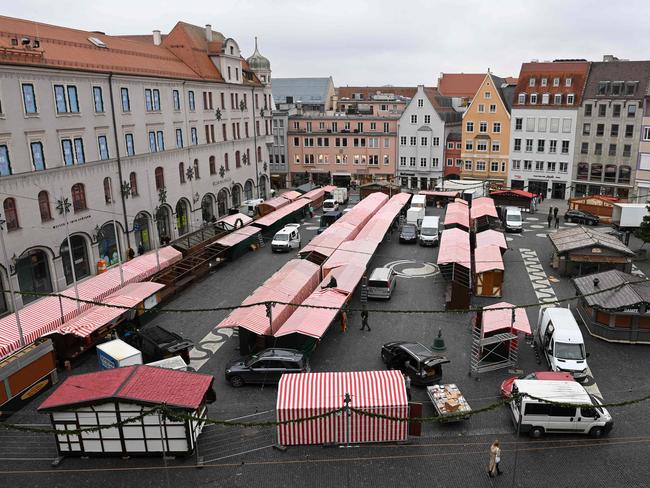
GERMANY
German cases are spiralling in what Chancellor Angela Merkel has called a “dramatic” fourth wave.
With the country’s hospitals on the brink of collapse, a lockdown could soon come into force which would last until 15 December.
Ms Merkel said the country was in a “highly dramatic” situation as a record 65,371 new cases were reported within 24 hours, confirming an upwards trend experts have been warning about for weeks.
Ms Merkel has applied fresh curbs to public life for unvaccinated people in areas where hospital beds are filling up with Covid-19 patients.
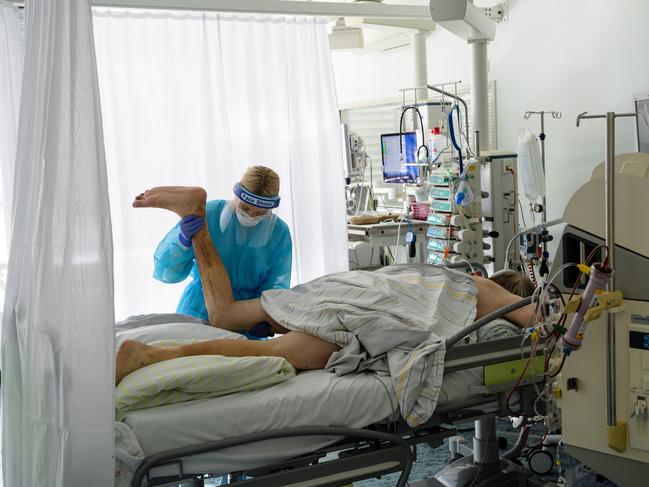
Ms Merkel’s administration was spurred into action after one of its most senior health officials warned of a “truly terrible” Christmas in an excoriating attack on the government’s handling of the fourth wave.
The head of the Robert Koch Institute, Germany’s disease control agency, said: “We are currently heading toward a serious emergency. We are going to have a really terrible Christmas if we don’t take countermeasures now.”
Lothar Wieler has long called for the closure of bars and clubs and an end to large-scale events.
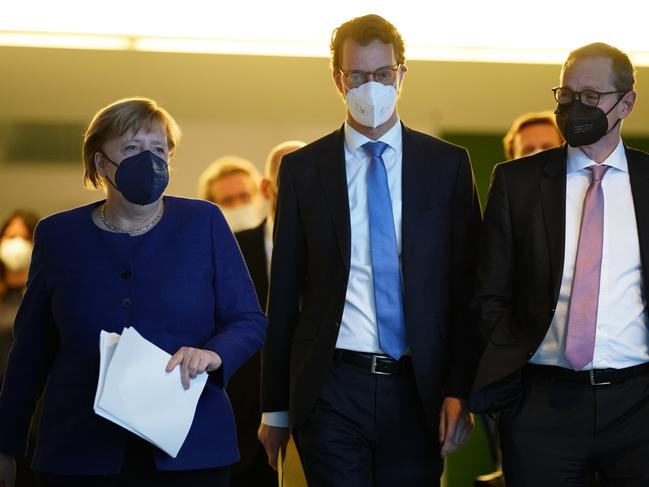
Professor Wieler accused ministers of failing to listen to the warnings that scientists have been issuing for months. He said he had “never been as worried” as he was now.
“You see, the forecasts are super dark,” Wieler, 60, told an online conference. “They’re really dark. There is an emergency in our country. If you can’t see that, you’re making a very big mistake.”
Meanwhile, Bavaria cancelled its renowned Christmas markets and closed bars and night clubs on Friday after being the centre of the latest Covid-19 outbreak.
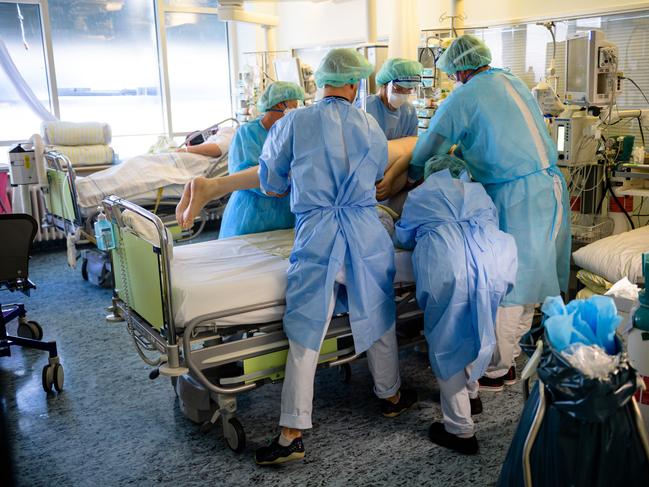
Germany has followed Austrai’s strict lockdown with their own new three-step system depending on the rate of hospitalisations in each region.
At the lowest level, which initially applies to 12 of the 16 states, indoor public spaces will only be open to the fully vaccinated and those who have recovered from a Covid-19 infection in the past six months.
Under the next step even vaccinated people will have to take a rapid test before visiting these spaces.
The final step, which could be triggered in at least two regions, involves contact restrictions for the vaccinated and stay-at-home orders for the unvaccinated, subject to the consent of the local state parliament.
The eastern hotspot state of Saxony, where more than 90 per cent of ICUs are full, is likely to be the first region to impose this rule.
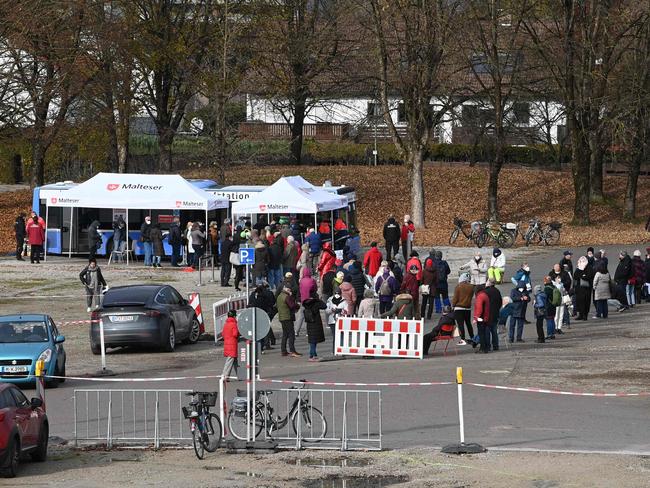
Ms Merkel, 67, said the government needed to use “every instrument at our disposal” to break the fourth wave in the worst hotspots.
“We have a really concerning situation,” she said. “It is a fact that the time it takes the number of cases across Germany to double is now 13 days, and the time it takes the occupation of ICU beds to double is 23 or 24 days. We need a rapid stop, a brake on the exponential growth.”
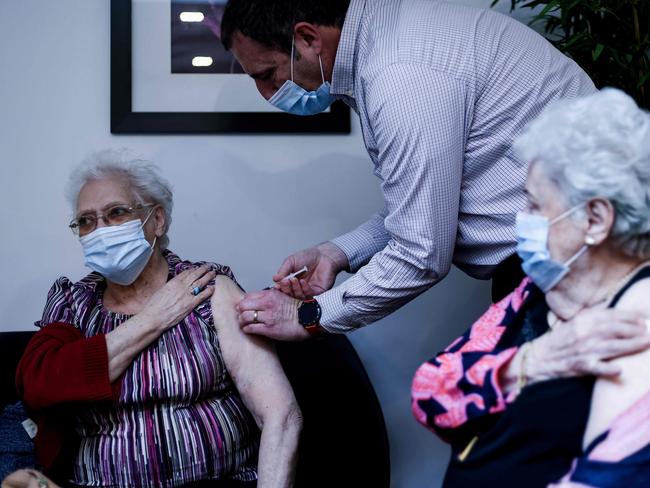
BELGIUM
Belgian Prime Minister Alexander De Croo has announced that children aged 10 and above will now have to wear masks while people will have to work from home for at least four days a week, as of Saturday.
Belgians will also now be asked to mask-up outdoors if they haven’t been jabbed or have proof of a health pass.
It comes as hospital admissions are rising at a rate of 30 per cent per week and have reached their highest level since May. More than a quarter of admissions end up in intensive care.
“All the alarm signals are red. Europe’s map is quickly going red, and we are the same,” Prime Minister De Croo said.

CZECH REPUBLIC
The Czech government announced additional new measures as cases soared to 22,479, eclipsing a record set on January 7 by almost 5,000.
The country’s infection rate rose to 1687.31 per 100,000 of the population over the past fortnight.
The Czech Republic, which spent several weeks as the global black spot for Covid-19 last year, has now clocked its highest incidence of infections since March 2020.
Under new measures being introduced on Monday, unvaccinated people will not be allowed to attend public events or go to bars or restaurants.
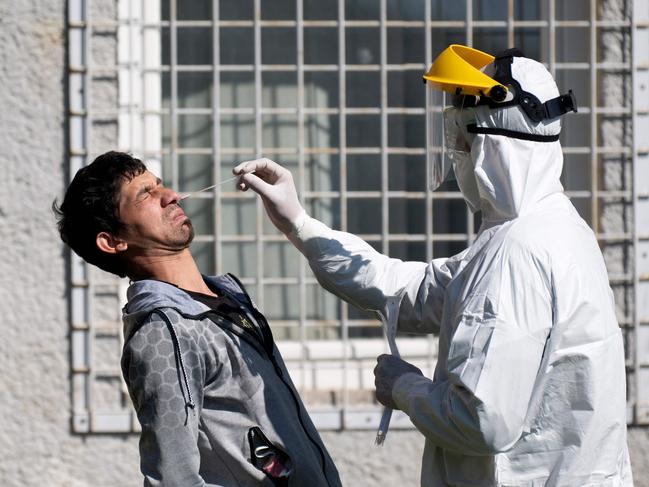
SLOVAKIA AND HUNGARY
Prime minister Eduard Heger signalled he was prepared to introduce harsher Covid restrictions if cases don’t begin to drop soon in the next three weeks.
Mr Heger said the country’s hospitals were in a “critical” condition as he introduced new lockdown measures on unvaccinated people last week.
Those snubbing the jab will be banned from all non-essential stores, shopping malls, gyms, pools and hotels, nor will they be able to attend mass public gatherings like sports events.
It comes as the former Soviet stronghold reported 8,342 new infections on Wednesday, smashing the previous record of 7,244 set last Friday.
Meanwhile, latest figures showed that over 81 per cent of people in hospital because of Covid had not been fully vaccinated.
Slovakia has one of the lowest vaccination rates in the EU with only 45 per cent of its nearly 5.5 million citizens being double-jabbed.
To make matters worse, thousands ditched their masks and social distancing rules on Wednesday as they celebrated the anniversary of the 1989 anti-communist Velvet Revolution, using the event to protest against the government’s incoming Covid restrictions.
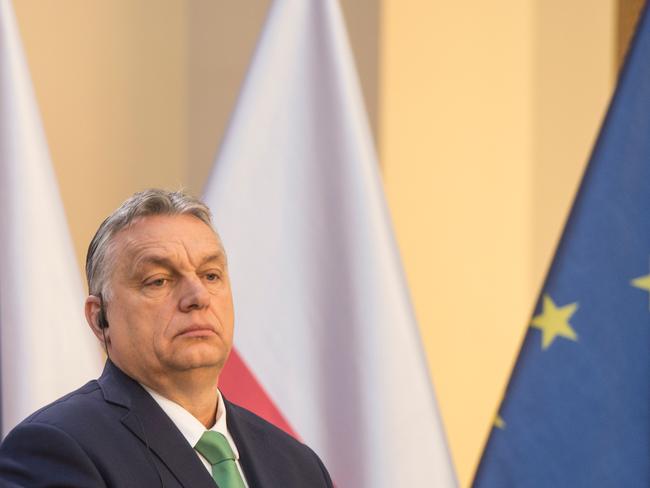
The Hungarian government also announced new measures on Thursday, Telex reported: Masks will have to be worn in all enclosed spaces except offices and sports halls from Saturday.
Public events with more than 500 people can only be attended with a Covid-19 vaccination/immunity certificate, and the third mandatory vaccination is in the works.
For service providers, masks will be compulsory wherever more than five people are regularly present in a room. School principals will be given the right to decide on the mask policy in their schools.
THE NETHERLANDS
The Netherlands, which registered a fresh high of 20,829 cases on Wednesday, has also forced bars and restaurants to close at 8pm and stopped spectators from attending sports matches.
The Dutch government on Friday, local time, outlawed traditional fireworks over New Year for a second year in a row, as hospital workers battle a record surge of Covid-19 infections.
New Year’s celebrations in the Netherlands are notoriously wild, with people setting off tens of millions of euros worth of fireworks in back gardens and streets, often causing injuries.
That threatens to clash with a new surge in coronavirus infections, with some 21,000 new cases reported in the last 24 hours -- the highest since the start of the pandemic.
Just like last year, the sale and lighting of fireworks will be banned,” the Dutch government said in a statement.
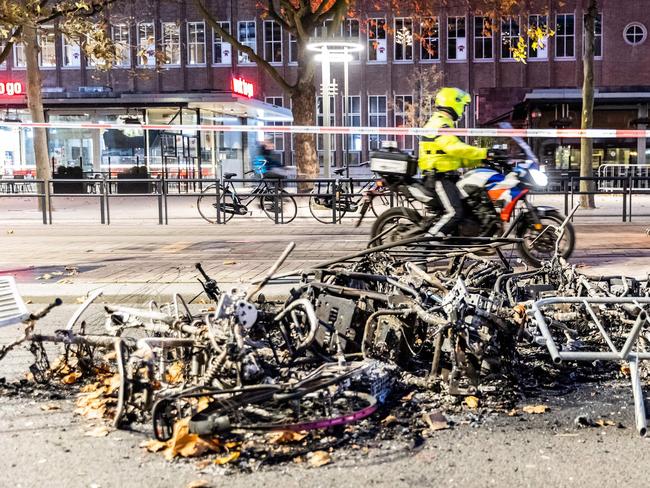
“This to prevent an extra burden on care workers, enforcers and paramedics as much as possible,” the statement said.
Dutch Health Minister Hugo de Jonge said “the number of coronavirus patients are rapidly increasing.” “We must do everything we can to relieve the pressure. Healthcare is already busy,” he said in a tweet.
The Netherlands last week announced a partial lockdown targeting shops, restaurants, bars and sports clubs as cases rocketed, the first to do so in Western Europe.
More than 12.6 million people in the country of 17.5 million have now been vaccinated, but concerns are mounting that the virus was now spreading among children younger than the current vaccination age of 12 years.
Bars, restaurants, cafes and supermarkets will have to shut at 8 pm for the next three weeks from Saturday, while non-essential shops must shut at 6 pm.
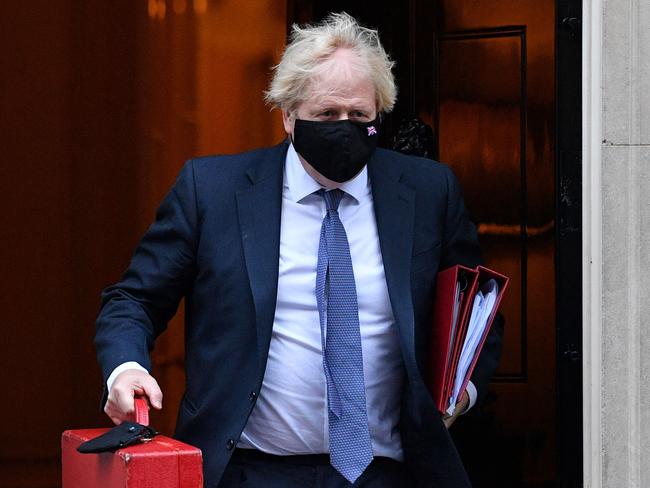
WHERE THE UK STANDS
This week Britain’s Prime Minister Boris Johnson acknowledged rising case loads in Europe could be a potential threat to the UK, according to The Sun.
He said: “We don’t see anything in the data at the moment to suggest that we need to go to Plan B. We’re sticking with Plan A.
“But what we certainly have got to recognise is there is a storm of infection out there in parts of Europe.”
Britain’s 7-day case rate as of 14 November was 403.1 per 100,000 people.
Meanwhile, it’s handed out 110.65 million jabs, according to Our World in Data, and fully vaccinated 80.2 per cent of the population.
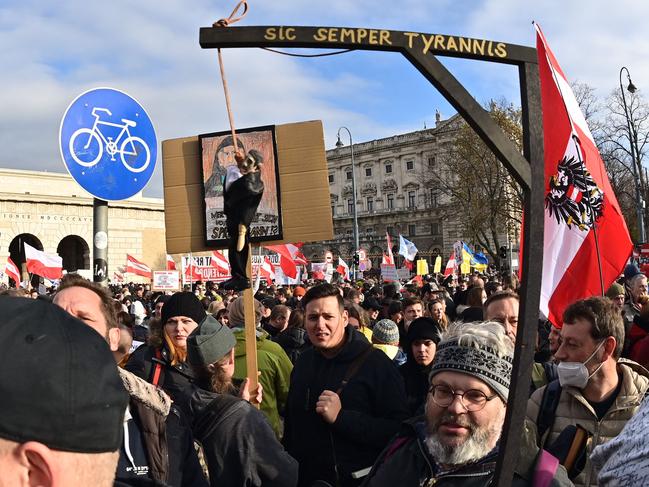
INSIDE AUSTRIA’S LOCKDOWN
In Austria, some overwhelmed hospitals have been forced to leave corpses lying on trolleys in corridors, and the nation on Friday became the first EU country to announce it would make coronavirus vaccinations mandatory and will next week impose a partial lockdown in the face of spiralling infections.
There is speculation that full lockdown may soon be extended to the rest of the country as its “lockdown on the unvaccinated” has yet to break the fourth wave
The lockdown, which comes into effect on Monday, constitutes the toughest restrictions introduced in Europe in recent weeks as Covid-19 cases surge continent-wide, fuelled by vaccine resistance.

Austrians will not be allowed to leave home except to go to work, shop for essentials and exercise. The restrictions will initially last 20 days with an evaluation after 10 days, Chancellor Alexander Schallenberg said.
Schools will remain open, although parents have been asked to keep their children at home if possible. Working from home is also recommended.
Vaccination against Covid-19 in the Alpine nation will be mandatory from February 1 next year, Schallenberg said. So far, the Vatican alone in Europe has imposed a vaccination mandate.
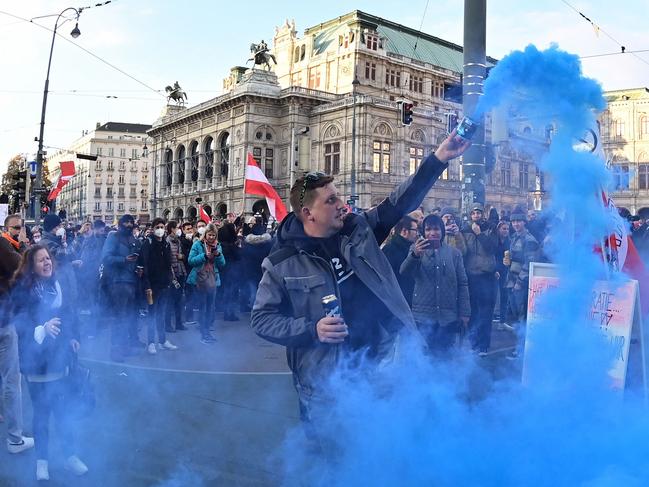
The World Health Organisation continues to favour policies that “demonstrate the benefit and safety of vaccines for the greatest possible acceptance of vaccines, rather than imposed mandatory vaccination,” spokeswoman Fadela Chaib told reporters in Geneva.
But Schallenberg said: “Despite months of persuasion, we have not succeeded in convincing enough people to get vaccinated,” and that vaccination is the only “exit ticket” out of the pandemic.
Austria has already imposed movement restrictions on those not vaccinated or recently recovered from the virus, ordering them to stay at home since Monday, becoming the first EU country to do so.
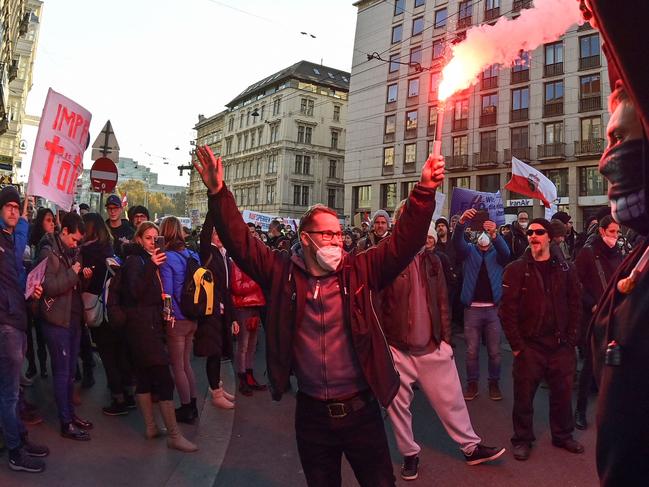
But infections have continued to rise. On Friday, a new record of more than 15,800 new cases was recorded in the EU member of nearly nine million people.
“I was hoping that there wouldn’t be a general lockdown,” said Markus Horvath as he prepared to shut from Monday his stall selling wooden jewellery at a Christmas market in Vienna.
Christian Edlmayr, selling glass ornaments at another Vienna Christmas market, said he would lose half his yearly revenue.
“This will be very, very bad for me,” he said.
Under the partial lockdown, only outlets deemed essential will remain open such as supermarkets, banks, pharmacies and post offices.
Andreas Schneider, a 31-year-old from Belgium who works as an economist in the Austrian capital, also described the lockdown as a “tragedy”, saying confining just the unvaccinated had been “reasonable” since they had a choice.
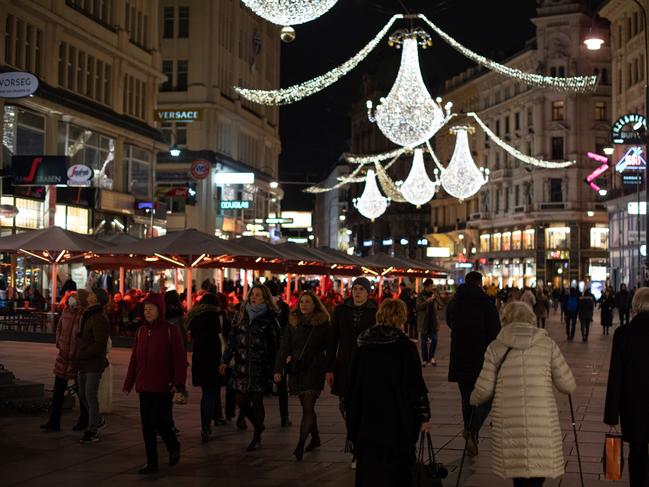
In Austria, demand for vaccinations has increased in recent days, and 66 percent of the population are now fully jabbed, slightly below the EU average of more than 67 percent.
On Friday, Austrian opposition party NEOs said the government should have acted sooner to avoid intensive care units from struggling, while the far-right Freedom Party (FPOe) described the country as a “dictatorship” over its plan to make vaccinations mandatory.
Austria’s decision “has some ethical human rights implications,” said the WHO’s Chaib, adding that other countries should look closely at the issue to avoid punishing groups of people that cannot be vaccinated for medical or other reasons.
Originally published as More European countries are facing lockdowns as coronavirus cases surge



